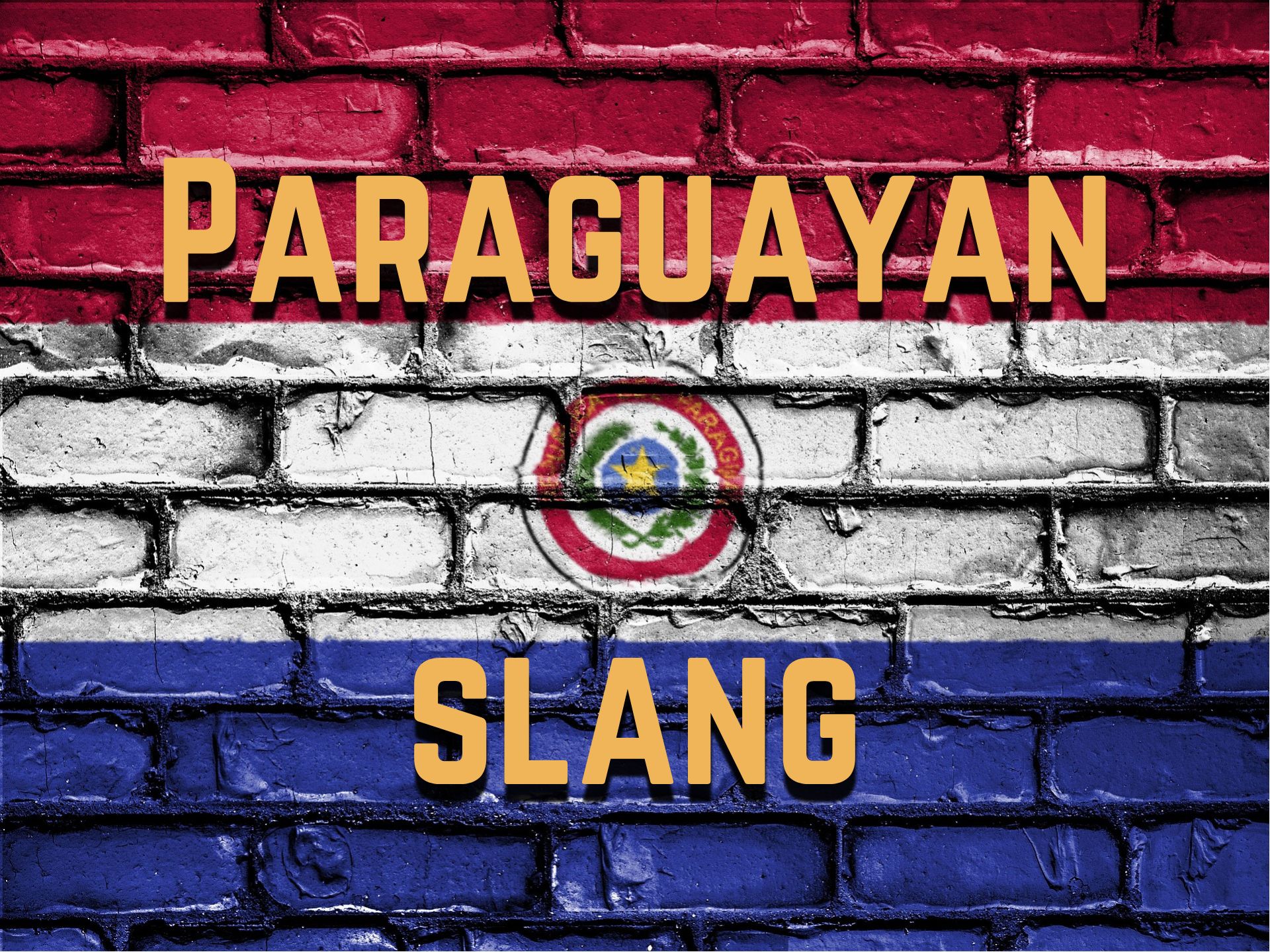Paraguayan Slang: Spanish words you’ll only hear in Paraguay

Get our free email course, Shortcut to Conversational.
Have conversations faster, understand people when they speak fast, and other tested tips to learn faster.
More infoThe Spanish language is well known for its diversity across the regions where it’s spoken. Each country has its own particularities, often providing a fascinating insight into the local culture. Paraguay is no exception, and a lot of Paraguayan slang words are indeed quite unique.
In contrast to other Spanish-speaking countries in Latin America, Paraguay’s dominant language is Guaraní, an indigenous language whose use in the country surpasses Spanish. Paraguayan Spanish features its own vocabulary and pronunciation, mainly influenced by Guaraní. As such, many of the Paraguayan slang words either stem from this indigenous language or are adopted from it outright.
Whether you’re planning to travel to Paraguay, or you’re simply curious about this distinctive regional variety of Spanish, you’re in the right place! In this post, we’ll provide you with a list of unique vocabulary you should know when speaking with Paraguayan locals, along with a couple of Paraguayan phrases.
Regional Spanish slang
This post is part of our popular series on slang in Spanish, where we focus on a specific country or region in each post. Once you’re done with the Paraguay slang in this one, click through to a couple of others to appreciate all the diversity in the Spanish language!
- Argentine slang
- Bolivian slang
- Chilean slang
- Colombian slang
- Medellín Spanish slang words
- Medellín Spanish slang expressions
- Costa Rican slang
- Cuban slang
- Dominican Republic and Caribbean slang
- Ecuadorean slang
- El Salvadorean slang
- Guatemalan slang
- Honduran slang
- Mexican slang
- Nicaraguan slang
- Panamanian slang
- Peruvian slang
- Puerto Rican slang
- Spaniard slang from Spain
- Uruguayan slang
- Venezuelan slang words
- Venezuelan slang expressions
- Spanish curse words and insults
Paraguayan slang words you need to know
Now let’s dive in and learn a bunch of unique Paraguay Spanish slang!
1) Haku
This Paraguayan slang term is used when talking about the weather, referring specifically to hot weather.
- ¡Haku está haciendo hoy! No creo que salga a correr. – It’s really hot today, I don’t think I can go out for a run.
2) Chipá
Chipá is a traditional bread made of manioc flour and cheese.
- Si estás en Paraguay debes probar el chipá. – If you happen to be in Paraguay you have to try chipá.
3) Guapo, Guapa
If someone calls you guapo or guapa in Paraguay, they’re not telling you that you are a good-looking person, as we saw in our post on compliments in Spanish, but rather that you are hard-working.
- Mi hijo es un joven guapo. – My son is a hard-working young man.
4) Chera’a
People in Paraguay normally use this Guaraní word to address a friend.
- ¡Hola, chera’a! – Hello my friend!
5) Tranquilopa
This Paraguayan slang word is used to reassure someone that everything is ok, to chill out, or to relax.
- ¡No te enojes! Tranquilopa, era una broma. – Don’t get angry! Chill out, it was a joke.
6) Tereré
The tereré is an ice-cold maté, a herbal infusion. It’s the most popular traditional drink among Paraguayans.
- ¿Quieres tomar tereré antes de irte? – Would you like to drink tereré before you leave?
7) Chisme
This is the Paraguayan slang term for gossip or rumor.
- Se corrió el chisme de que Juana se casó en Europa. – There was a rumor that Juana got married in Europe.
8) Ahata-ayu
This is a phrase in Guaraní, Paraguayans use to say goodbye. It’s used mainly to imply that the speaker is leaving and will return soon. It’s very popular in everyday speech, especially used among friends and family.
- “Ahata-ayu”, le dijo a su esposa. – “I’m going to leave and return,” he said to his wife.
9) Chake
If someone in Paraguay tells you chake! pay attention to what is happening around you because this Paraguayan slang term means watch out!
- ¡Chake! Ahí viene una motocicleta. – Watch out! There’s a motorbike coming.
10) ¡Mbore!
This Paraguayan slang term is normally used to express an outright negation or disbelief. In English, you would say No way!
- ¿Me prestas tu auto? ¡Mbore! – Would you lend me your car? No way!
11) Luego
Luego in Spanish normally means “later.” However, in Paraguay, this word has no specific meaning but Paraguayan speakers add it to some expressions to emphasize a past action.
- Te dije luego. – I told you.
12) Cementerio timbre
Paraguayans use this phrase to talk about someone who is not productive at all. The literal meaning of this phrase is “cemetery bell.”
- No trabaja nunca, es un cementerio timbre. – He never works, he’s a total deadbeat.
13) Meter a alguien en la escuelita
If someone has been deceived or cheated, Paraguayans use this phrase to say that they got fleeced. Literally, it translates as “to send someone to school.”
- El carro que compraste está roto. Te metieron en la escuelita. – The car you bought is broken. You’ve been had.
14) Se armó un guarara
This phrase is used to describe a noisy or chaotic situation consisting of disruptive behavior. The phrase can also be used to describe a heated argument or fight between people. Guarara is a Paraguayan slang term meaning a commotion, so se armó una guarara translates essentially as a commotion has been whipped up.
- Cuando el equipo perdió el partido, se armó una guarara en el vestuario. – When the team lost the game, a commotion started in the locker room.
Conclusion
Understanding Paraguay’s slang can help you comprehend the viewpoints of its people better and improve your language skills, leading to more effective communication. What’s more, throwing a few of these specific Paraguay slang terms into your conversation is bound to endear you to the locals!
We hope you’ve enjoyed the Paraguayan slang we presented in this post. Of course there are many more words and phrases locals use, but these will get you off to a great start with your Paraguayan chera’a. These basics also provide a good cultural context for the moment you set foot in Paraguay.
Finally, if you’re planning a trip to Latin America, we also recommend our post on Spanish travel phrases. ¡Buen viaje i ahata-ayu!



